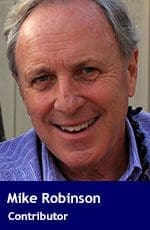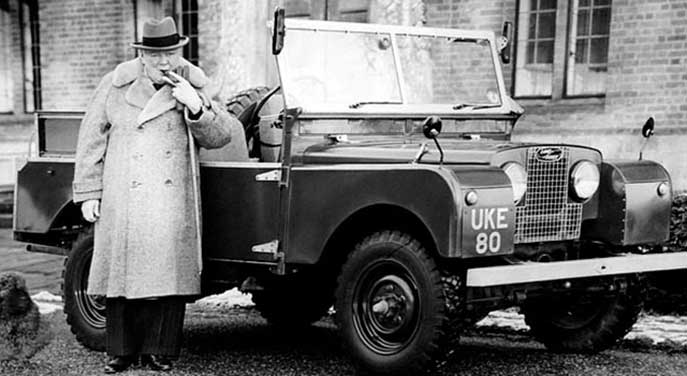 Winston Churchill was the first political leader I noticed.
Winston Churchill was the first political leader I noticed.
My school, St. George’s School for Boys, was staffed with many First and Second World War veterans, men and women who revered Churchill. He was constantly held up as the epitome of global politicians: erudite, opinionated, brave, loyal au mort, sportsmanlike, impeccably groomed and dressed for every occasion, and the indomitable voice of the British Empire in the face of Adolf Hitler’s tyranny.
We were taught to face any problem that life could throw at you with the question: “How would Churchill react in this situation?”
Churchill was already a doddering old man when his many achievements in life, pointed out as “contributions to our lives,” were spoken of by our teachers. It would have been impossible to exit any of the Remembrance Days held at my school from Grades 1 to 12 without words from his many famous speeches ringing in your ears:
- “You have enemies? Good. That means you have stood for something, sometime in your life.”
- “All great things are simple and many can be expressed in single words: freedom, justice, honour, duty, mercy, hope.”
- “Never in the field of human conflict was so much owed by so many to so few.”
After a while, especially as the teenage years took hold, the “Old Boy” started to wear a bit thin, perhaps because of the constant repetition of his perfect example. He was the original hard act to follow.
But later in life, especially as I began to write more, his example of fresh language and moral purpose began to develop greater appeal. He exemplified, for at least three generations, the highest qualities of public service in public life.
In late 1960s, the university years for many Canadian boomers, another figure arose. He was very different in his appeal but equally dominant in our public square – Pierre Elliott Trudeau. He was perfectly cast as the new Liberal leader in an era when youth were looking for a glimmer of rebellion, of internationalism, of a new urbane style.
Trudeau seemingly moved us all beyond the world of Canadian politics defined by John Diefenbaker and Lester B. Pearson. That was a world replete with baggy blue suits, chauffeured black Cadillacs and our parents’ vocabulary.
Trudeau pirouetted behind the Queen, had fashionably long hair, wore corduroy suits and was in excellent physical shape. Even though 49 in 1968, he managed to convey a youthful attitude that was less of his generation and more of the hippie, anti-war era into which he was first elected. His examples of fresh language were also notable:
- “There’s no place for the state in the bedrooms of the nation.”
- “I will use all my strength to bring about a just society to a nation living in a tough world.”
- “Just watch me.”
Trudeau was a major influence on 1960s and 1970s Canadian youth. He was the first prime minister in our lifetime who identified with a younger perspective on our place in the world. He seemed totally with it, plugged in, turned on and tuned up. He defined his political era through style, wit, intelligence and achievement.
For many, he signalled a new approach for Canada in the larger world, importantly embracing early the changes sought by Mikhail Gorbachev in the Soviet Union, keeping a lifelong communication line open with Cuba’s Fidel Castro, and understanding the fundamental motivations of leaders as varied as the Aga Khan, Jimmy Carter and Imane Khalifeh.
His modernity helped young people see a role for themselves in politics.
With Churchill and Trudeau in mind, I looked at how Donald Trump personifies public service in contemporary America.
By Churchillian standards, Trump’s a complete cypher. His oratory and written abilities are simplistic beyond belief.
He symbolizes no lifelong commitment to values beyond money and self. He champions greed in a profession defined by altruism.
He’s surrounded by old white men and family members in an international public sphere defined by struggles for inclusivity and diversity.
He parades dangerous cynicism and selfishness on the global stage.
At a minimum, that all influences impressionable minds. The next generation of public servants is cooking in the Trump crucible. We must hope for the best.
Churchill echoes in my mind: “If you’re going through hell, keep going.”
Mike Robinson has been CEO of three Canadian NGOs: the Arctic Institute of North America, the Glenbow Museum and the Bill Reid Gallery. Mike has chaired the national boards of Friends of the Earth, the David Suzuki Foundation, and the Canadian Parks and Wilderness Society. In 2004, he became a Member of the Order of Canada.
The views, opinions and positions expressed by columnists and contributors are the author’s alone. They do not inherently or expressly reflect the views, opinions and/or positions of our publication.



Your Big L political biases are showing again Mike.
Churchill united not only Britain, but all of the free world. Trudeau divided Canada for his own political gain.
Churchill opposed Communism. Trudeau was a fellow traveller.
Trudeau was no Churchill.
Dana Wilson